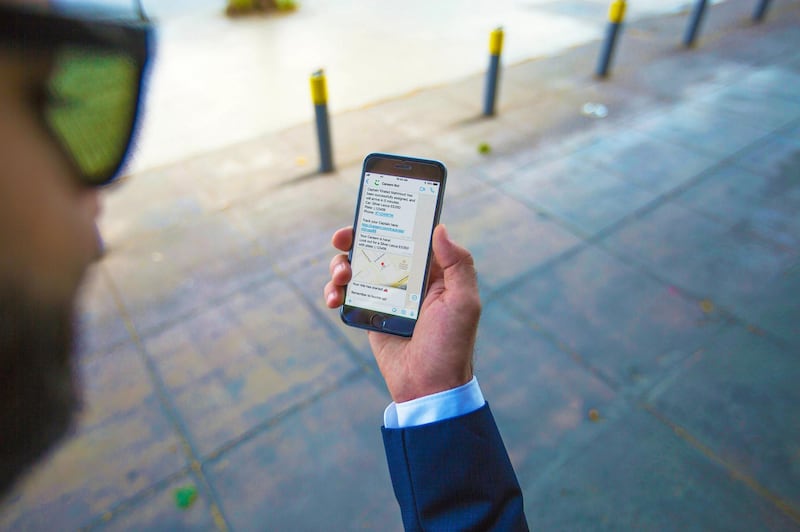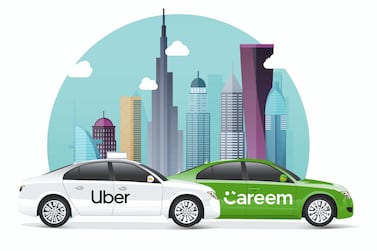Careem is testing booking rides through WhatsApp in Iraq, where ride-sharing is relatively new and internet connection is slow, in a bid to reach more customers.
Allowing people to book Careem rides on the messaging app, which has 80 per cent penetration in Iraq, makes the process easier for people who are not familiar with ride-hailing apps, Careem said.
“The idea was born out of a Careem overnight-hackathon and is built by our engineers, product and growth managers,” said Emre Tok, the vice president of customer growth and digital marketing at Careem. “It’s believed that this is the first time a chatbot has been used in this way to book rides and the potential addressable market is significant.”
Dubai company Careem was snapped up in March by global ride-hailing giant Uber for $3.1 billion (Dh11.39).
The new service will help Careem reach an estimated 3.94 million WhatsApp users in Iraqi cities, where the messenger operates.
The pilot service will be tested in the capital Baghdad, where smartphone penetration levels are among the lowest in the world, with 3G services only introduced in 2015.
Careem expects the WhatsApp booking service to use less mobile data, making it a "more viable alternative" in the cash-dependent market, the company said.
The feature will initially only work for existing Careem customers who are using their registered phone number, but it will open up to others in the future.
To book a ride, a customer can send a message to a Careem bot via WhatsApp and the bot checks if the phone number is in its database. If not, then a WhatsApp message with a sign-up link to the Careem website is returned.
The bot can identify the user’s language and respond in English or Arabic depending on the initial communication. Careem will add more languages in the future, it said.
If the person is already registered, they are asked to share their location using the "send location" feature in WhatsApp. Once shared, the user will be prompted to choose the required car type, then this information creates a booking through the messenger.
The dispatching process uses Careem’s existing application programming interface and nothing actually changes in the back-end process, only the way the information is taken from the customer, Careem said.
Once the driver is dispatched, the user receives a message with details of the vehicle and expected time of arrival.
At the end of the journey, the passenger can also rate the ride from one to five via a WhatsApp message instead of clicking on a star rating in the Careem app.
“We’ve always sought to apply specific solutions to specific local problems, whether that’s different modes of transport or ways of operating,” said Mohamed Al Hakim, the general manager of Careem Iraq.
“Careem is acutely aware that there is no such thing as a one-size-fits-all approach for the Middle East, so we’re always adapting to local needs.”







